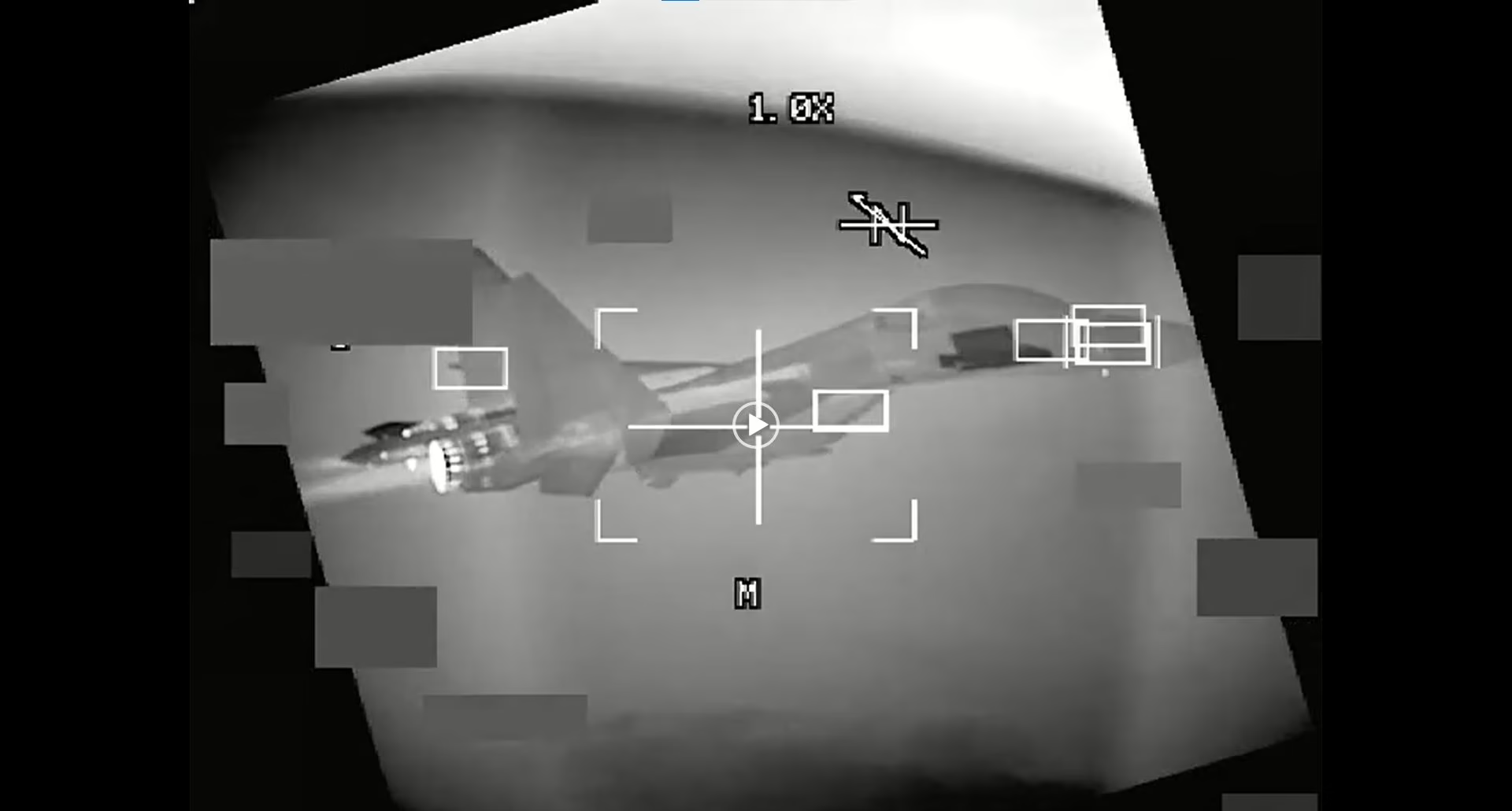
A Chinese J-11 intercepts a B-52 on Oct. 24 in the South China Sea.
A People’s Liberation Army Air Force J-11 flew within 10 ft. of a U.S. Air Force B-52 in the South China Sea this week, the latest in a series of what the Pentagon alleges is a campaign of unsafe intercepts.
Defense Department officials say China is undertaking a centralized and concerted effort to change international air operations in open air space near contested areas in the region. Earlier this month, the department announced there had been 180 intercepts over the past two years.
One of the most dramatic such incidents took place on Oct. 24 involving the J-11 and the B-52. U.S. Indo-Pacific Command (INDOPACOM) said in a statement that the bomber was flying a routine operation over the South China Sea in international airspace at night when the Chinese fighter approached.
“During the nighttime intercept, the PRC [People’s Republic of China] pilot flew in an unsafe and unprofessional manner, demonstrated poor airmanship by closing with uncontrolled excessive speed, flying below, in front of, and within 10 feet of the B-52, putting both aircraft in danger of collision,” INDOPACOM says. “We are concerned this pilot was unaware of how close he came to causing a collision.”
Ely Ratner, the assistant defense secretary for Indo-Pacific security affairs, said during an Oct. 17 briefing that China’s recent activity “seeks to intimidate and coerce members of the international community into giving up their rights under international law.”
The incident also comes shortly after the Pentagon released its yearly report on China’s military power, highlighting the issue—including other incidents during which Chinese fighters used maneuvers such as a high rate of closure and discharging flares close to U.S. aircraft.
“The PLA’s [People’s Liberation Army] behavior contravenes flight safety protocols and the international maritime rules of the road, and increases the risk of a major accident, incident, or crisis, including the potential for loss of life,” the report says.
